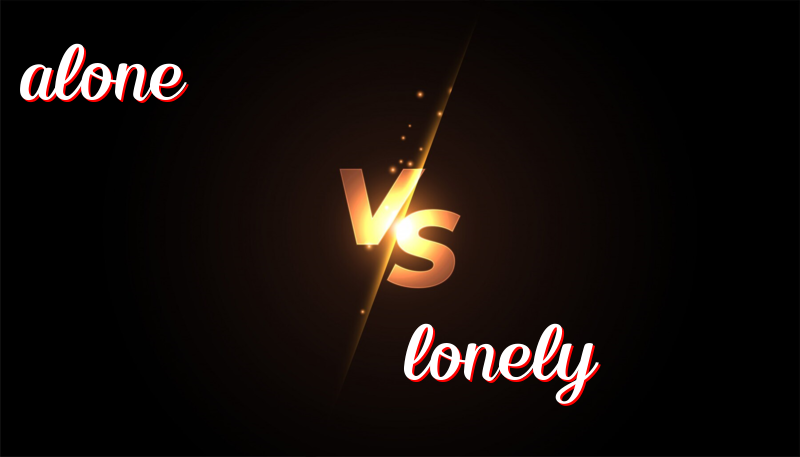Understanding Alone and Lonely: Differences and Usage
Understanding the Difference Between “Alone” and “Lonely”
Words can sometimes be tricky because they seem similar, but they have different meanings. “Alone” and “Lonely” are two such words. Let’s learn about them.
History of the Words
The word “alone” comes from two old words “all” and “one,” meaning “all by oneself.” The word “lonely” has its roots in the word “lone,” which means “without companions.” Over time, “lonely” came to mean a feeling of sadness because of being alone.
How to Use Them
Alone:
When we use “alone,” we talk about being by ourselves without other people. It describes a state, not a feeling. You might choose to be alone, and you can feel happy or content.
Lonely:
“Lonely” is used when someone feels sad about being by themselves. It is more about the feeling of missing company, not just being without others.
Trick to Remember the Difference
Think of the letter “L” in “lonely” as a symbol for a “longing” or “losing” feeling because when you are lonely, you want company. “Alone” is just being “one” without anyone else but does not mean you feel sad.
Example Sentences for “Alone”
- She walks to school alone every day.
- He enjoys reading alone in his room.
- The cat prefers to be alone sometimes.
- She likes to paint alone because it’s peaceful.
- I can handle this task alone, thank you.
Example Sentences for “Lonely”
- He felt lonely in the big city.
- She was lonely without her family there.
- The old man looked lonely at the park.
- Even in a crowd, she sometimes feels lonely.
- He missed his friends and felt lonely.
Summary
To wrap it up, “alone” means being by yourself without others, but you might be happy. “Lonely” means feeling sad and missing someone when you are by yourself. Remember, “lonely” has the “L” for the longing of company, while “alone” is simply being on your own.

Leave a Reply
You must be logged in to post a comment.